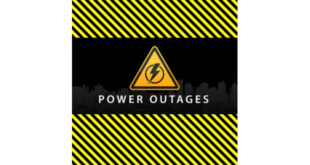New Scheme Violates Privacy, No Association to Actual Cost of Use
California has some of the worst roads and freeways in the country ranking 7th to last nationally, despite having the 4th highest gas taxes. This might be understandable if California suffered from ice and snow which wreak havoc on paved roads, but we don’t. California has the best weather on the continent.
Yet California Legislators and local agencies like the Southern California Associated Governments (SCAG) and San Bernardino Associated Governments (which currently collects an additional ½ cent sales tax) are now attempting new schemes to increase costs for commuters by adding or converting California’s per gallon excise tax to a highly regulated per-mile tax on your car or truck.
The concept seems fair enough. The more people drive, the more they use the roads and the more they should pay in theory. But that is a fallacy which will be exposed later in this article. The true concern for California government is that the per-gallon tax on fuel doesn’t cover costs. Of course, it was never truly designed to do so.
Roads and freeways were always, in part, infrastructure improvements used by taxpayers as a general good, just like schools, public buildings, sidewalks, or any other infrastructure development. Federal and State governments have long used general funds to build roads and freeways.
Today, Californians pay over 40 cents per gallon excluding the federal gas tax of 18.4 cents and the plethora of local sales taxes passed by regional agencies such as Measure I in San Bernardino County. When you add the recent Green House Gas fee estimated to be at least 10 cents per gallon, it is obvious to anyone that Californians aren’t getting what they are paying for.
In addition to these taxes, California initiated an elaborate fee structure under AB-32, the 2006 “Global Warming Solutions Act,” that imposes fees on vehicles and parts. Let’s not forget the annual vehicle registration fees we all pay which do not fund roads.
When California taxpayers consider that California has raided transportation fund accounts during budget deficits, used fuel taxes for projects on underperforming bus and rail projects, reallocated road lanes to bike paths and has higher construction costs than other states, it would be expected that Californians might revolt.
Perhaps that revolt is beginning over recent oversteps by local agencies in San Bernardino County. The City of Redlands recently reduced vehicle lanes in the city for exclusive bicycle lanes. It hasn’t gone over so well, as commuters rarely see cyclists using the brightly colored lanes which means that they aren’t reducing car traffic for a lane bicycles didn’t pay for. SANBAG is now pursuing the installation of toll lanes to widen the 10 Freeway, a widening that was promised to be funded by the last Measure I Sales Tax reauthorized by voters in 2004.
Now, state and local (non-elected) government agencies are counting on you, the drivers of California, to support a new scheme that would tax you on how many miles you drive. They aren’t saying how they would accomplish that, but with new technology, they can very easily track your whereabouts and driving habits with your own car’s computer. Of course, they make these proposals with the excuse that fuel efficiency in newer cars (which government mandated in the first place) and the advent of the still-failing electric car experiment are reducing gasoline use.
This argument ignores the simple science that fuel efficiency has been driven largely by the reduction of vehicle size and weight. The amount of energy needed to move any mass, including your car, does not change and government cannot proscribe science. The cars we drive today are smaller, lighter, and have lower impacts on roads and traffic then they did 20 years ago.
The per-gallon tax on fuel is a fair measurement of actual use and impact on roads and highways because it not only accounts for miles driven, it also accounts for the impact of vehicle size and weight which are significant factors for congestion and road deterioration. Every commuter knows to avoid the right hand freeway lanes which are usually in far worse condition due to commercial truck traffic or has seen the ruts in pavement caused by buses at bus stops. Does anyone really think a Prius is even slightly comparable?
It is time for governments to stop the tax schemes and properly utilize the resources they have been amply given. The state can reduce the costs of regulation on construction that drives costs higher. Governments at all levels can use existing general fund taxes for roads and highways that benefit every Californian, and finally, government can stop siphoning funding from gas taxes to nonsensical rail and bus projects like SBX and the DOA High Speed Rail project.
Perhaps when they do these things first, taxpayers will consider providing a little more money.
 IE Business Daily Business news for the Inland Empire.
IE Business Daily Business news for the Inland Empire.


